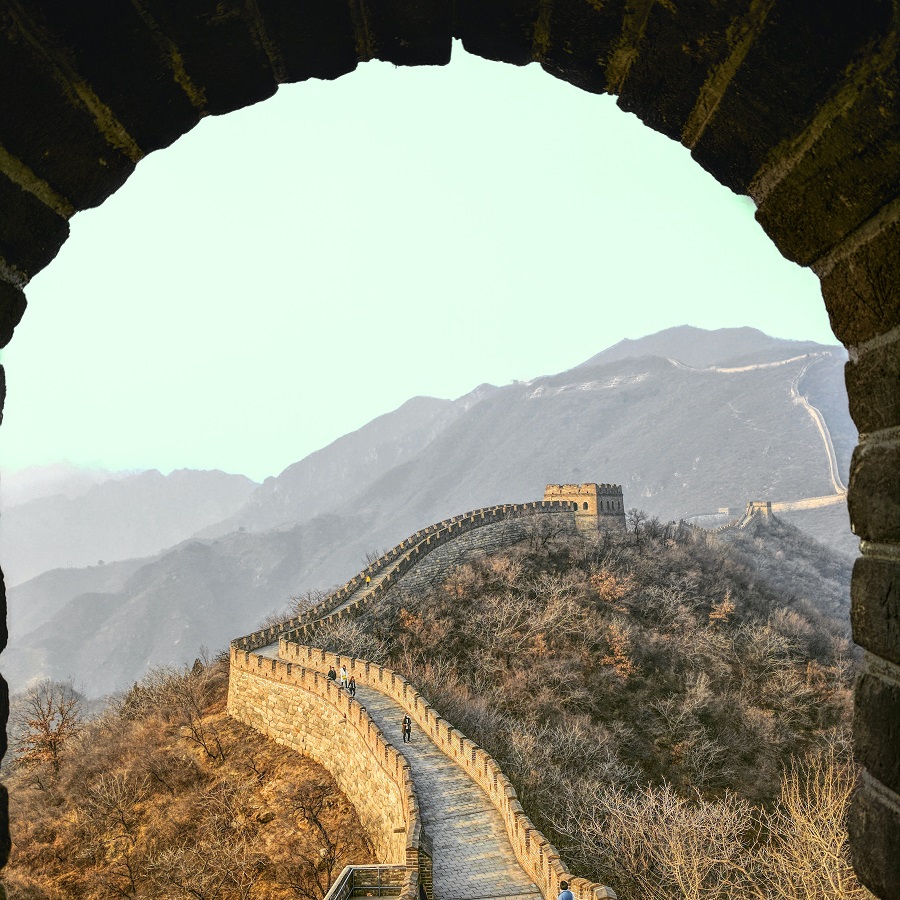
Fears around corporate governance, a slowing economy and political protests in Hong Kong are keeping investors away from China.
Research by asset manager Matthews Asia and Greenwich Associates found that many investors have a lack of exposure to the world's second largest economy in their portfolios, largely due to intensifying uncertainty over the country's outlook.
A survey of 150 professional investors around the world found that while many are willing to back unloved European markets such as the UK and Germany, they are more cautious about China.
Yet, Robert Horrocks, chief investment officer at Matthew Asia, says there are plenty of reasons to be positive on the region, which could provide some welcome diversification into investment portfolios.
Thriving Economy
A population of 1.4 billion people and GDP of $12.2 trillion have earned China a reputation as a economic powerhouse of the world. While there have been widespread concerns about a slowdown in economic growth in recent years, at around 6% it still far outstrips growth in any western economies.
Indeed, the US posted growth of 1.9% in the third quarter of the year and the UK 1%. Lasr week the Chinese government also announced it would cut interest rates to stimulate the economy and the country is expected to be the largest economy in the world within a decade.
Many investors may still associate China with extreme poverty but Horrocks points out there has been significant change. Over the past 50 years, extreme poverty has dropped drastically from 53.3% of the population to 10.6%. Quality of life has improved significantly too, after huge investment in infrastructure.
“It’s an amazing humanitarian achievement at a great speed,” says Horrocks. He recalls it taking more than a day to travel between Shanghai and Hong Kong by train 20 years; today high speed trains can do the journey in a matter of hours.
While China's economic success has historically been associated with exports, today it is the domestic consumer story that investors are interested in. Adrian Lim, manager of the Asia Dragon Trust (DNG), invests in China International Travel, for example, which is benefiting from an increase in Chinese tourists travelling overseas.
Horrocks, meanwhile, points out that China is the largest electric vehicle market in world and a major driver in healthcare innovation. The Silver-rated Matthews Asia Dividend fund, for example, invests in car manufacturer Hyundai Mobis and med-tech company Hoya Corp.
Moving into the Mainstream
For overseas investors looking to access the opportunities in China, doing so has become increasingly easy in recent years. In 2017, China's domestic stocks - known as A-Shares - were included in the MSCI Emerging Markets index.
Historically, many Chinese companies have had to list their shares in Hong Kong to attract international investment. But the inclusion of A-Shares on global indices marked a landmark opening up of the country's domestic stock market to foreign investors. Doing so also means these stocks attract inflows from any passive funds tracking the market.
Strong performance has also put China on investors' radars. The country has outperformed the S&P 500 over the past 20 years, according to Matthews Asia, and almost half of managers investing in the region have outperformed their benchmark. The strong returns have been largely led by the boom in tech companies in the region including internet company Tencent and online marketplace Alibaba, which account for almost 30% of the MSCI China index between them.
Hidden Gems
Tiffany Hsiao, manager of the five-star rated Matthews China Small Companies fund points out that despite their strong returns, many Chinese companies are reasonably priced compared with their counterparts in developed markets. She thinks that makes now a good time to invest for anyone who believes in the long-term growth potential of the country.
But Hsiao says that to truly access the growth in China, investing in domestic companies is the key and particularly in smaller companies. "The low research coverage in the market leaves the field open for finding undiscovered companies with untapped growth potential," she adds. Among the fund's top holdings are waste disposal company Sunny Friend Environmental Technology (TSEC) and manufacturer Asia Cement (ASCD) and she also likes the luxury goods sector and semiconductor chip manufacturers.
Lim also likes these areas and holds Kweichow Moutai, a luxury liquor and wine brand. While there were fears that a crackdown on bribery in China would affect the sales of luxury goods, he thinks the firm has remained resilient and benefits from a trend of Chinese consumers wanting only the best. He also likes China Merchant Bank, which will benefit from the rising wealth of the population.
A key attraction of domestically focused companies in the country too is that they are less likely to be affected by the ongoing trade tariff spat between the US and China, which many fear could weigh on exports.





























